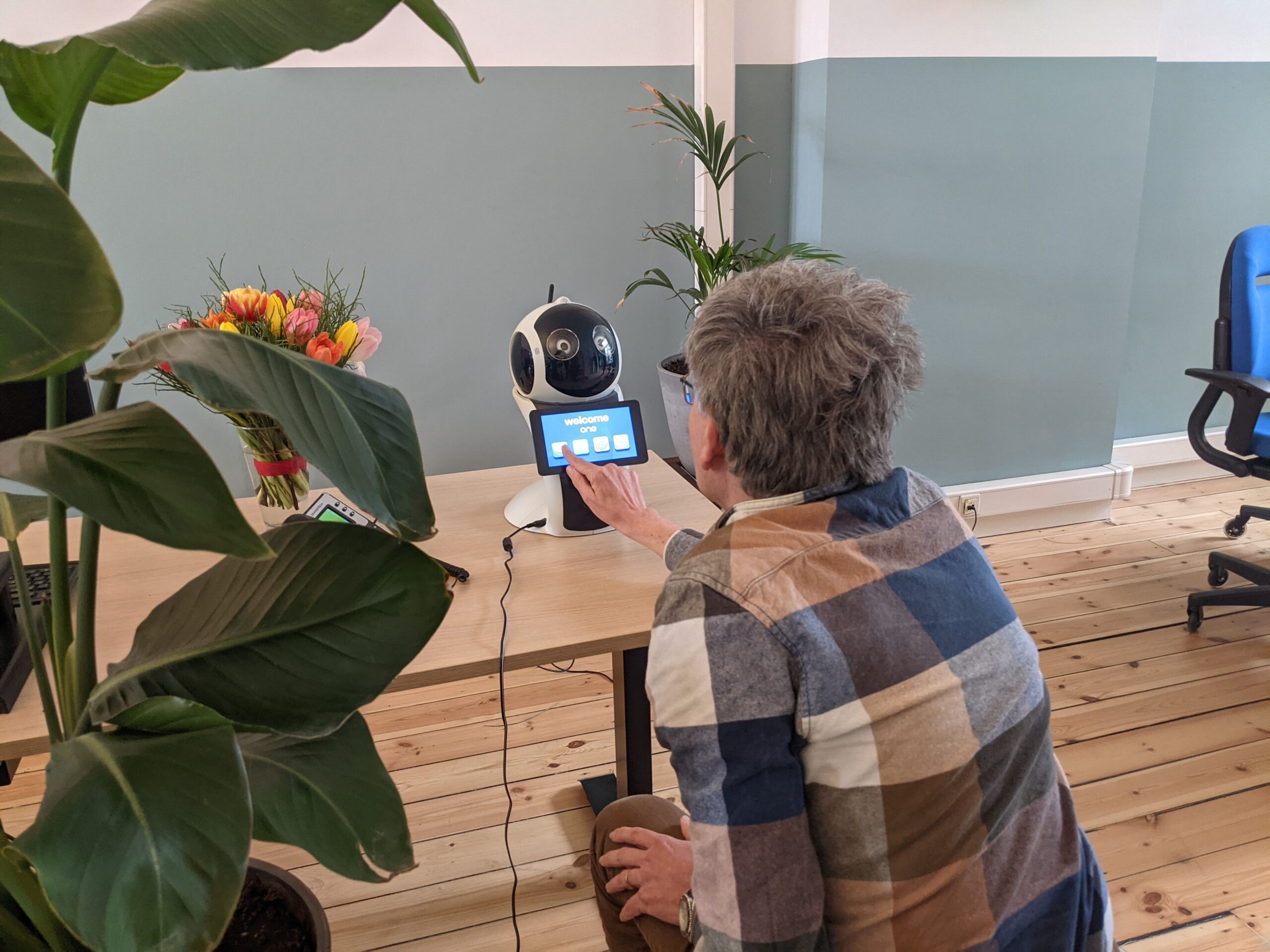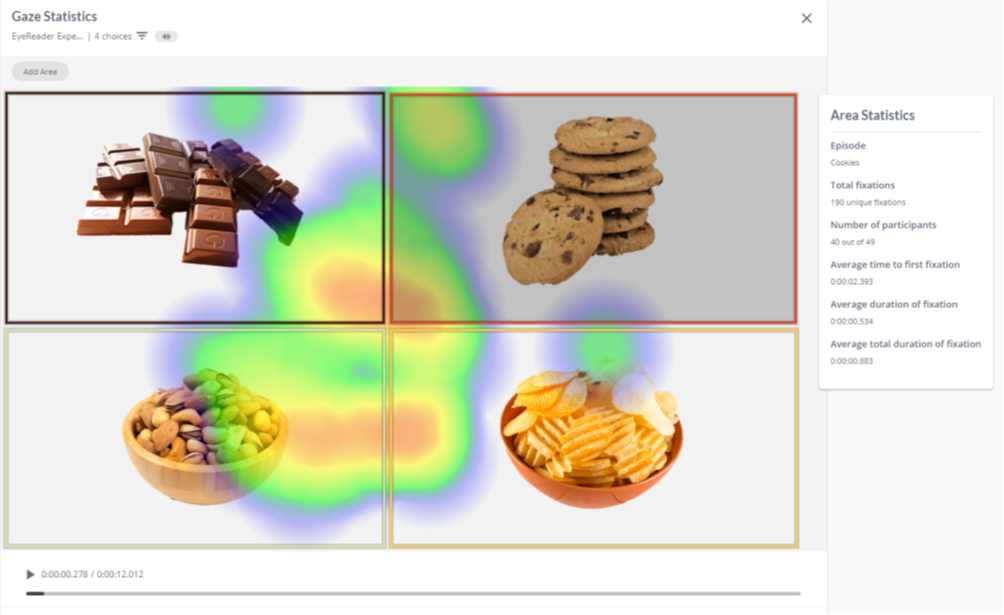VicarVision at British Machine Vision Conference
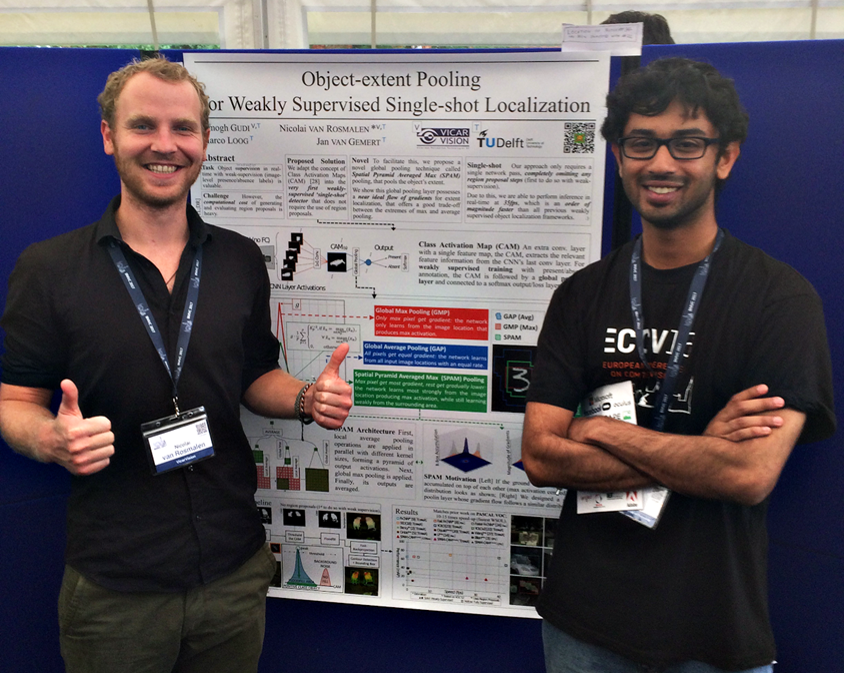
Last week the Imperial College of London hosted the 28th edition of the British Machine Vision Conference (BMVC). From all over the world researchers and representatives of industry (Google, Microsoft, Facebook, etc.) met up to present and discuss the newest developments in the fields of Computer Vision and Machine Learning. Since only 188 of the 635 submitted papers were accepted to this event, we were proud to attend and present some of the research done at VicarVision.
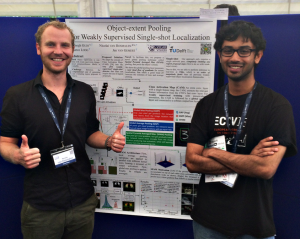
We were represented by Nicolai and Amogh, who presented their paper “Object Extent Pooling for Weakly Supervised Single-Shot Localization” at BMVC’17.
In products like FaceReader and Vicar Analytics we make use of the modern algorithms that are usually referred to as “Deep Learning”. These algorithms have shown to work extremely well for finding objects (i.e. faces, people) in images or video. The work that we presented at BMVC shares one of our new ideas about how we can make these algorithms much faster and lighter (in terms of computer memory) while not having to trade against accuracy. At the conference this idea was well received and we had the opportunity for a lot of interesting discussion, which will contribute to further development of our algorithms.
Aside from inspiring research, BMVC’17 also provided a podium to some interesting developments in the industry. Richard Szeliski for instance, Director of the Computational Photography Group at Facebook, demonstrated what his team is currently working on.
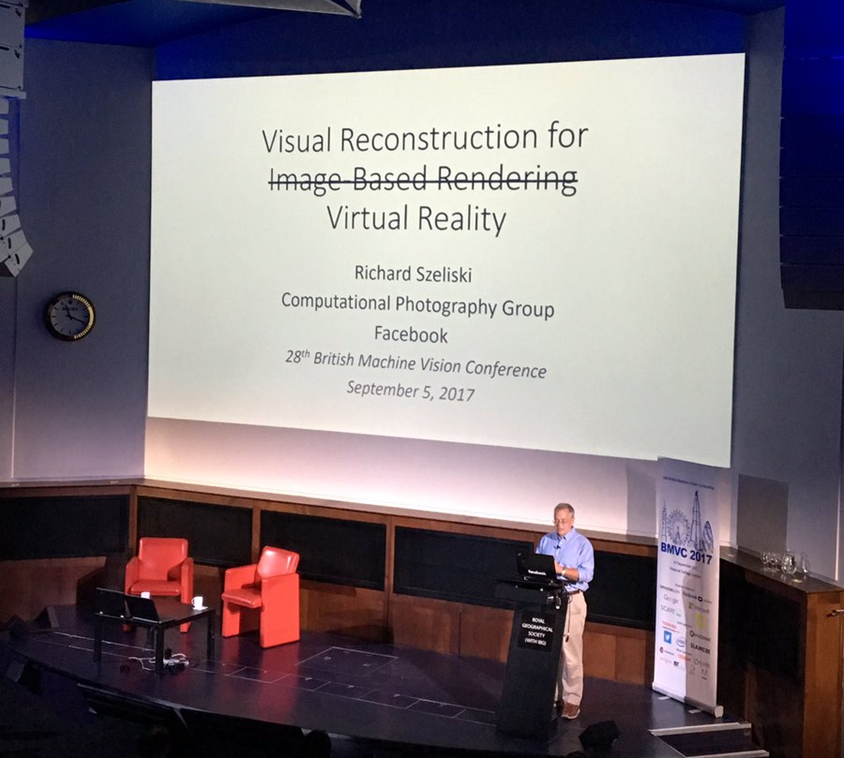
With a technique called Visual Reconstruction they can use a set of images taken with a smartphone (similar to how we make a panorama) and create a 3-dimensional scene. The philosophy at Facebook is that such 3D scenes will become shareable content and used as a Virtual Reality for others. In his speech Szeliski showed a glimpse of the next step on Facebook’s roadmap: initially people shared text and images with each other. Nowadays we have a great number of vloggers and videos make up a great part of Facebook’s content. However, with 360 degree cameras and virtual reality slowly becoming more strongly embedded in our daily lives we will soon be able to truly immerse our friends and family in our experiences.
To sum up, attending BMVC’17 was very rewarding. It was an inspiring conference that will help us stay on top of the cutting edge computer vision research from all over the world. We look forward to the next opportunity to exchange ideas with the community.


